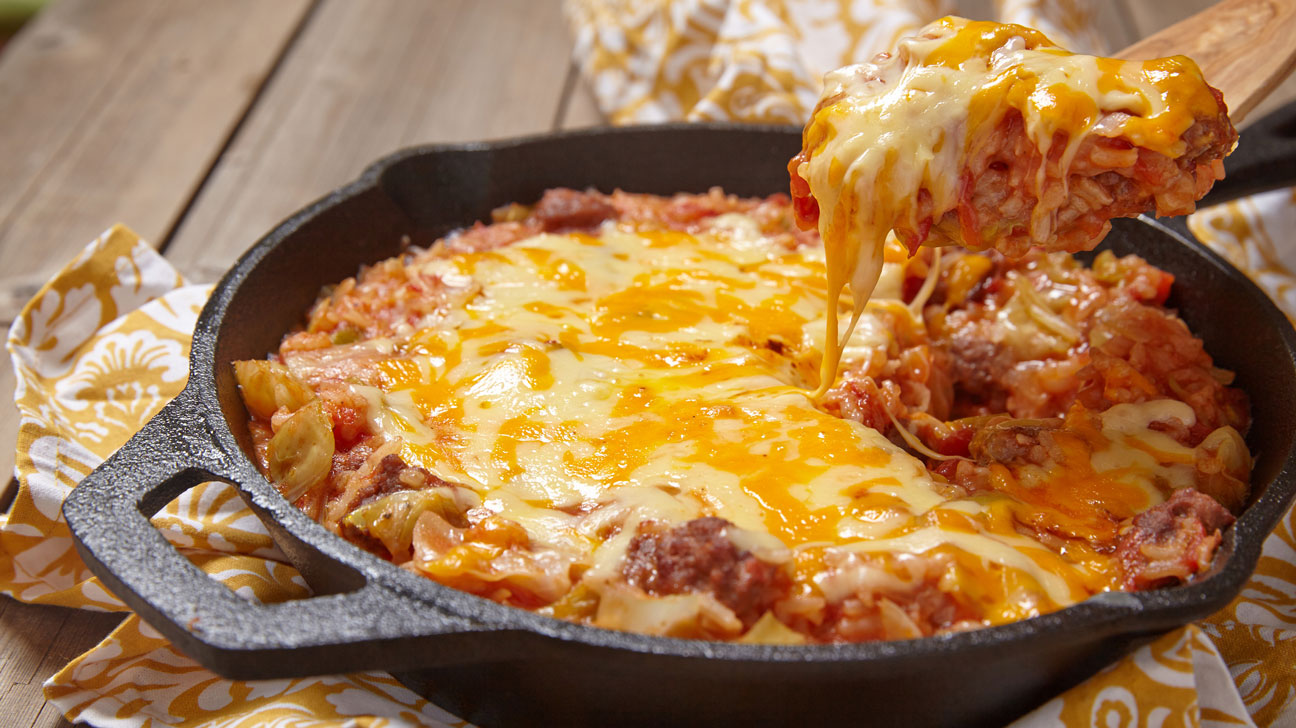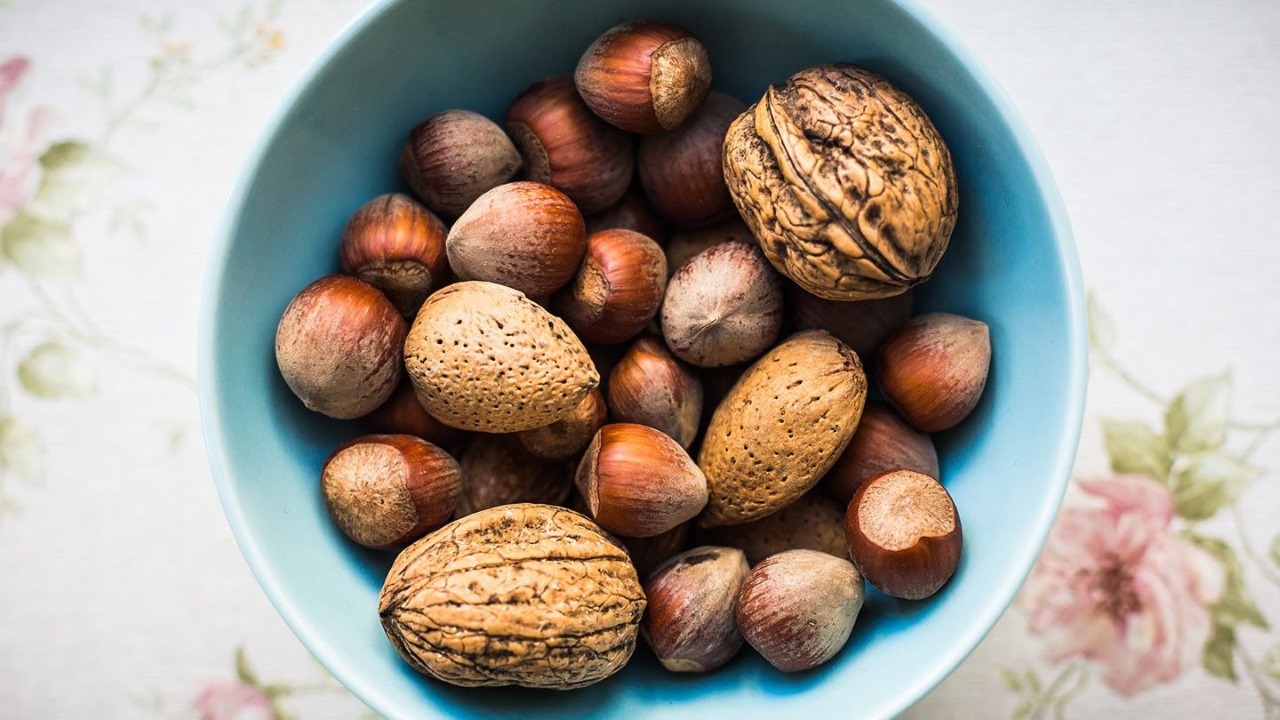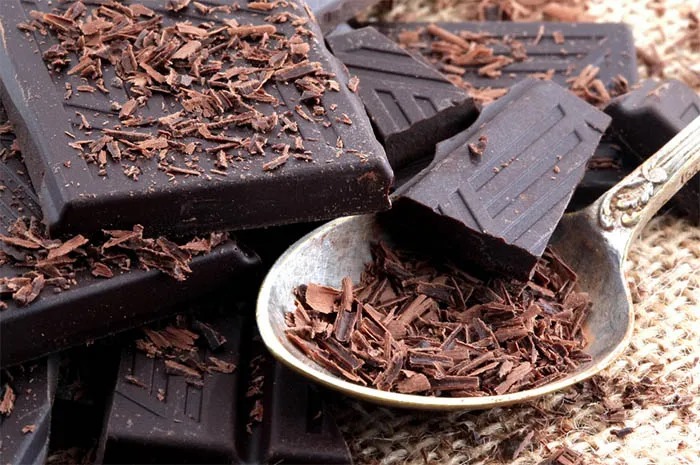Cutting down on carbs doesn't have to mean sacrificing flavor, variety, or nutrition. In fact, when done right, a low-carb diet can feel more like a lifestyle upgrade than a restrictive regimen. Numerous studies now confirm that reducing carbohydrates—especially refined ones—can lead to impressive improvements in health. These include lower blood sugar levels, reduced triglycerides, and significantly higher HDL cholesterol, commonly referred to as the "good" kind.
More interestingly, low-carb diets often reduce hunger naturally, meaning you might lose weight without even thinking about it. No tedious calorie counting. No complicated food logs. Just smart, satisfying choices made consistently.
And the best part? Most low-carb foods are simple, accessible, and genuinely delicious.
Understanding Total Carbs vs. Net Carbs
Before diving into the list, there's one important thing to clarify: not all carbs are equal. Many of the foods featured here are high in fiber, which your body doesn’t digest. Net carbs—total carbs minus fiber—are often the more relevant figure for those tracking carbohydrate intake. That’s why a food might look carb-heavy on paper but still be perfectly acceptable on a low-carb diet.
In the sections below, you’ll find both total carb counts and practical serving sizes so you can make more informed decisions. The majority of these foods are whole, unprocessed, and naturally low in carbohydrates.
1–6. Protein-Rich Staples: Eggs and Meats
These protein powerhouses offer the backbone of many low-carb diets. Most meats and eggs contain almost no carbohydrates, making them ideal foundational foods.
Eggs (Virtually Zero Carbs)
Eggs are more than just breakfast staples—they're nutritional dynamos. Rich in high-quality protein, choline, and essential nutrients for eye health, eggs support brain function and satiety. Whether hard-boiled, poached, or scrambled, they’re endlessly versatile.
Carbs: Almost none
Beef (Zero Carbs)
From juicy steaks to hearty ground beef, beef is an excellent source of iron, zinc, and vitamin B12. It's also incredibly filling, making it a perfect choice for low-carb eaters. Opt for grass-fed beef when possible for additional nutrients.
Carbs: Zero
Lamb (Zero Carbs)
Lamb is often pasture-raised and naturally higher in conjugated linoleic acid (CLA), a fatty acid linked to various health benefits. It's rich in iron and B vitamins, with a robust flavor ideal for grilled or roasted dishes.
Carbs: Zero
Chicken (Zero Carbs)
Lean and versatile, chicken is a worldwide favorite. Thighs and wings offer more fat and flavor, which is great for low-carb diets that don't shy away from healthy fats.
Carbs: Zero
Pork and Bacon (Typically Zero)
While pork is generally very low in carbs, be cautious with processed versions like bacon. Choose natural, uncured varieties without added sugar for the cleanest option.
Carbs: Zero, but always check the label
Jerky (Usually Zero)
When made without sugar or additives, jerky is a perfect on-the-go snack. However, many commercial options are highly processed—homemade versions offer more control and fewer additives.
Carbs: Close to zero if no sugar is added
Other Notable Low-Carb Meats:
-
Turkey
-
Veal
-
Bison
-
Venison
7–10. Seafood Favorites
Rich in omega-3 fatty acids, iodine, and protein, seafood is not only low in carbs but also a cornerstone of heart-healthy eating.
Salmon (Zero Carbs)
Praised for its high omega-3 content and anti-inflammatory benefits, salmon is both flavorful and filling. Opt for wild-caught when available.
Carbs: Zero
Trout (Zero Carbs)
Similar in nutritional profile to salmon, trout is another fatty fish loaded with essential nutrients like vitamin D, B12, and healthy fats.
Carbs: Zero
Sardines (Zero Carbs)
These small but mighty fish are among the most nutrient-dense foods you can eat. Eaten whole—bones and all—they're rich in calcium, selenium, and B12.
Carbs: Zero
Shellfish (4–5% Carbs)
Often overlooked, shellfish like oysters, mussels, and clams are packed with minerals and provide a solid protein punch.
Carbs: 4–5g per 100g
image 2
Other Low-Carb Seafood to Try:
-
Shrimp
-
Cod
-
Tuna
-
Lobster
-
Herring
-
Halibut
-
Haddock
-
Catfish
11–22. Low-Carb Vegetables
Most vegetables, especially leafy greens and cruciferous types, are low in digestible carbohydrates and high in fiber, vitamins, and antioxidants.
Broccoli (7%)
High in fiber and vitamins C and K, broccoli also contains powerful compounds like sulforaphane known for cancer-fighting potential.
Carbs: 6g per cup / 7g per 100g
Tomatoes (4%)
Technically a fruit, tomatoes are rich in lycopene and antioxidants. Great for sauces, salads, and snacking.
Carbs: 7g per large tomato / 4g per 100g
Onions (9%)
Used in nearly every cuisine, onions add depth and aroma. They also deliver antioxidants like quercetin.
Carbs: 11g per cup / 9g per 100g
Brussels Sprouts (7%)
Packed with fiber and antioxidants, Brussels sprouts belong to the same family as broccoli and cabbage.
Carbs: 6g per half cup / 7g per 100g
Cauliflower (5%)
A true low-carb hero, cauliflower is incredibly versatile—it can be mashed, riced, or turned into pizza crust.
Carbs: 5g per cup / 5g per 100g
Kale (10%)
Rich in vitamins A, C, and K, kale is also loaded with antioxidants like lutein and zeaxanthin.
Carbs: 7g per cup / 10g per 100g
Eggplant (6%)
A fiber-rich vegetable with a subtle, earthy flavor. Eggplant works beautifully in grilled dishes or stews.
Carbs: 5g per cup / 6g per 100g
Cucumber (4%)
Low in calories and high in water content, cucumbers make for refreshing snacks and salad ingredients.
Carbs: 2g per half cup / 4g per 100g
Bell Peppers (6%)
Bright, crunchy, and vitamin C-rich, bell peppers are a flavorful addition to stir-fries, dips, or raw platters.
Carbs: 9g per cup / 6g per 100g
Asparagus (2%)
A nutrient-packed spring vegetable high in folate, vitamin K, and fiber, also noted for its diuretic effect.
Carbs: 3g per cup / 2g per 100g
Green Beans (7%)
Technically legumes but eaten as vegetables, green beans are rich in fiber, vitamins C and K.
Carbs: 8g per cup / 7g per 100g
Mushrooms (3%)
Low in calories and full of umami flavor, white mushrooms are rich in B vitamins and potassium.
Carbs: 3g per cup / 3g per 100g
Other Worthy Low-Carb Veggies:
-
Spinach
-
Zucchini
-
Swiss chard
-
Celery
-
Cabbage
23–27. Low-Carb Fruits That Fit Your Plan
Fruits generally contain more sugar than vegetables, making them a bit trickier for low-carb eaters. But that doesn’t mean you have to avoid them entirely. By focusing on fiber-rich, lower-glycemic fruits—especially those rich in healthy fats or antioxidants—you can still enjoy nature’s candy without sabotaging your goals.
Avocados (8.5%)
Technically a fruit, avocados are packed with heart-healthy monounsaturated fats, potassium, and fiber. Since most of their carbs come from fiber, their net carb count is very low.
Carbs: 13g per cup / 8.5g per 100g (net carbs significantly lower)
Olives (6%)
These small, briny fruits are a great source of iron, copper, and vitamin E. Their high fat content makes them incredibly satiating.
Carbs: 2g per ounce / 6g per 100g
Strawberries (8%)
Strawberries offer a delicious dose of vitamin C, manganese, and antioxidants. They're one of the lowest-carb fruits you can enjoy in moderation.
Carbs: 11g per cup / 8g per 100g
Grapefruit (11%)
Tart, juicy, and packed with vitamin C, grapefruit is a decent option if your carb limit allows. Try half a grapefruit with breakfast for a refreshing start.
Carbs: 13g per half / 11g per 100g
Apricots (11%)
These sweet, compact fruits are rich in potassium and vitamin C. A couple of apricots won’t break your carb bank.
Carbs: 8g in two apricots / 11g per 100g
Other Low-Carb Fruit Options:
-
Raspberries
-
Lemons
-
Kiwis
-
Oranges
-
Mulberries
28–31. Nuts and Seeds for Crunch and Satiety
These tiny powerhouses are rich in fats, protein, and fiber—making them great for curbing hunger while keeping carbs low. They’re also incredibly versatile: sprinkle them on salads, eat them raw, or use their flours in low-carb baking.
Almonds (22%)
Loaded with magnesium, vitamin E, and healthy fats, almonds are known for their crunch and satiety.
Carbs: 6g per ounce / 22g per 100g
Walnuts (14%)
Rich in omega-3 ALA and antioxidants, walnuts support brain and heart health. They're particularly satisfying as an afternoon snack.
Carbs: 4g per ounce / 14g per 100g
Peanuts (16%)
Technically a legume, peanuts still make the cut thanks to their low net carb count and nutrient profile. They’re high in magnesium and healthy fats.
Carbs: 5g per ounce / 16g per 100g
Chia Seeds (44%)
Though their carb count seems high, nearly 86% of the carbs in chia seeds come from fiber. When soaked, they form a gel-like texture great for puddings or smoothies.
Carbs: 12g per ounce / 44g per 100g (very low net carbs)
Other Low-Carb Nuts and Seeds:
-
Macadamia nuts
-
Hazelnuts
-
Flaxseeds
-
Pumpkin seeds
-
Cashews
-
Sunflower seeds
-
Pistachios
-
Coconuts
32–35. Dairy Options That Keep Carbs in Check
If you're lactose tolerant, dairy can be a delicious and nutritious part of your low-carb diet. Full-fat versions are usually lower in sugar and more filling.
Cheese (1.3%)
From cheddar to mozzarella, cheese delivers calcium, protein, and flavor in a compact package. Pairs wonderfully with meats and veggies.
Carbs: 0.4g per slice / 1.3g per 100g
Heavy Cream (3%)
This rich dairy product is often used in coffee or as a base for low-carb sauces and desserts. Whipped cream made from heavy cream is a classic keto-friendly topping.
Carbs: 1g per ounce / 3g per 100g
Full-Fat Yogurt (5%)
Packed with probiotics, yogurt helps support gut health. Choose plain, unsweetened varieties to keep the sugar content low.
Carbs: 11g per 8 oz / 5g per 100g
Greek Yogurt (4%)
Strained and thicker than regular yogurt, Greek yogurt is high in protein and very satiating. Mix with berries or nuts for a low-carb treat.
Carbs: 6g per 6 oz / 4g per 100g
36–38. Fats and Oils That Support Your Goals
Fats don’t need to be feared—especially the healthy, unprocessed kinds. When following a low-carb diet, fats become a major energy source. Just be sure to avoid refined vegetable oils.
Butter (Zero Carbs)
Choose grass-fed butter for extra nutrients like vitamin K2. Perfect for cooking, baking, or melting over vegetables.
Carbs: Zero
Extra Virgin Olive Oil (Zero Carbs)
A cornerstone of the Mediterranean diet, EVOO is rich in monounsaturated fats and antioxidants. Ideal for salads, dressings, or low-heat cooking.
Carbs: Zero
Coconut Oil (Zero Carbs)
Known for its medium-chain triglycerides (MCTs), coconut oil may boost metabolism and support fat burning.
Carbs: Zero
Other Low-Carb-Friendly Fats:
-
Lard
-
Tallow
-
Avocado oil
39–42. Low-Carb Drinks to Keep You Hydrated
When it comes to drinks, simplicity is key. Most sweetened beverages are off the table, but there are plenty of refreshing and satisfying options that contain little to no carbs.
Water (Zero Carbs)
Nothing beats clean, cold water for hydration and health. Add a slice of lemon or cucumber for variety.
Carbs: Zero
Coffee (Zero Carbs)
Rich in antioxidants and energy-boosting compounds, coffee may even support fat burning. Best enjoyed black or with a splash of heavy cream.
Carbs: Zero
Tea (Zero Carbs)
From black to green to herbal blends, tea offers warmth and wellness without the sugar.
Carbs: Zero
Carbonated Water / Club Soda (Zero Carbs)
The fizzy fix for soda cravings—just check labels to avoid artificial sweeteners or hidden sugars.
Carbs: Zero
43–44. Unique Low-Carb Picks That Don't Fit the Mold
Some foods don’t fit neatly into the usual food categories—but they’re still worth mentioning for anyone on a low-carb plan. These options are a bit unexpected but can add depth, satisfaction, and flavor to your diet when used strategically.
Dark Chocolate
Yes, you read that right—dark chocolate can be low-carb friendly, provided you choose the right kind. Look for varieties with 70–85% cocoa content and no added sugar. Dark chocolate is rich in iron, magnesium, and flavonoid antioxidants that support brain health and heart function.
Be mindful of portion sizes, and remember that fiber makes up a good chunk of the carb content—meaning fewer net carbs overall.
Carbs: 13g per ounce / 46g per 100g (actual digestible carbs are much lower depending on fiber content)
Herbs, Spices, and Condiments
Though they may not contribute much volume, herbs and spices bring meals to life with flavor, aroma, and even medicinal benefits. Garlic, turmeric, oregano, rosemary, and cinnamon are examples of potent low-carb seasonings.
Condiments like mustard, vinegar, and hot sauce also fall into this group—but always check labels for added sugars.















